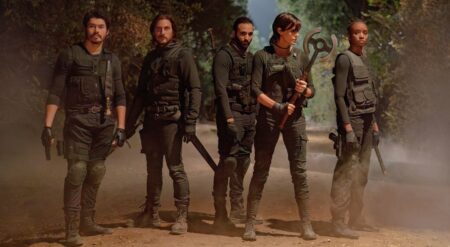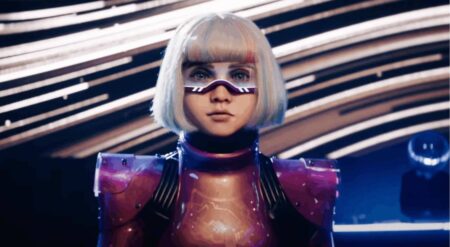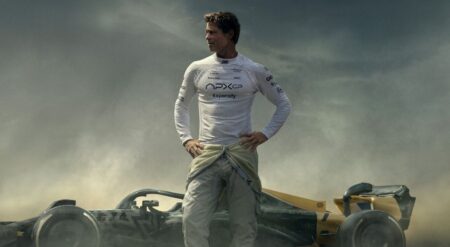In 2021’s surprise hit Dune, director Denis Villeneuve makes a promise to audiences. Behind all the grand spectacle, Villeneuve establishes a foreboding tone that indicates he just might nail the apocalyptic terror of Frank Herbert’s classic novel. In Dune: Part Two, the direct follow-up film, that promise is fulfilled.
Dune: Part Two isn’t just an exceptional work of technical craftsmanship. Nor is it simply an epic sure to be in conversation with the likes of Star Wars or The Lord of the Rings. This second film is, above all else, a terrifying warning against the power of “savior” figures and the destruction those narratives cause.
Picking up directly where the first movie left off, Dune: Part Two finds Paul Atreides (Timothée Chalamet) and his mother, Jessica (Rebecca Ferguson), in the care of the native Fremen people of the planet Arrakis. Their Great House now destroyed by the cold Emperor Shaddam IV (Christopher Walken), the two plot their revenge. To do so, Paul plays into the prophecy of a great messiah, the Lisan Al-Gaib, laid out by the Fremen people. In the shadows, Jessica stokes the flames.
As he grows closer to Fremen warrior Chani (Zendaya), he takes on a mythic status among the people. The Mythic journey of Paul Atreides continues as Shaddam, his daughter Princess Irulan (Florence Pugh), and the clairvoyant Bene Gesserit sisterhood must act. To do so, they enlist the help of Feyd-Rautha Harkonnen (Austin Butler). The twisted nephew of Baron Harkonnen (Stellan Skarsgård), Feyd-Rautha may not be enough to stop the impending Holy War under Paul’s name.
From Zendaya to Timothée Chalamet, the cast only gets better in this Dune sequel.
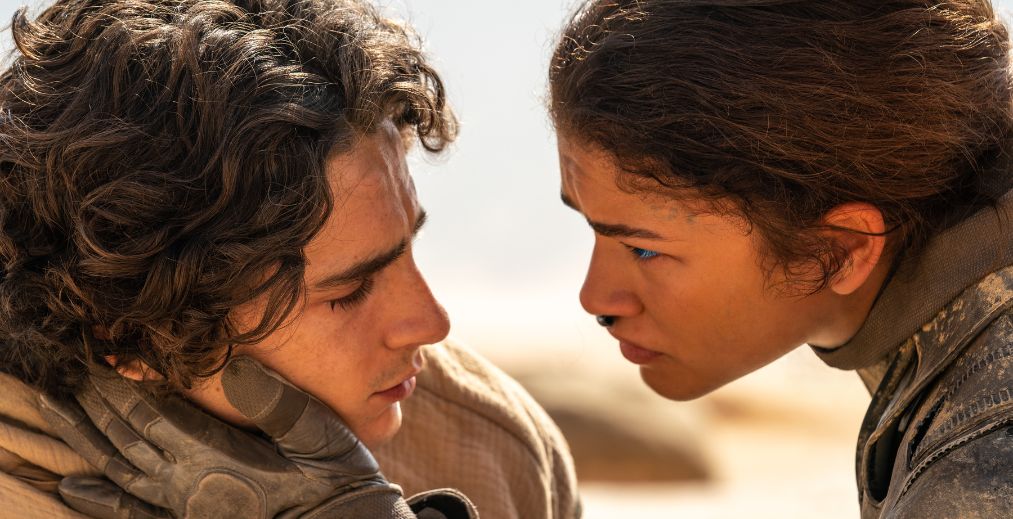
Everything audiences liked about the first film is back in full force for Dune: Part Two. The returning players all put their best foot forward. Rebecca Ferguson is unnerving as ever as Lady Jessica, Stellan Skarsgård and Dave Bautista repulsive as the Harkonnens, Josh Brolin’s Gurney Halleck still full of that gruff military charm, and Javier Bardem bringing his signature gravitas to Fremen leader Stilgar. The cinematography from Greg Fraisier remains the gold standard for a blockbuster on this scale. Hans Zimmer turns in one of his strongest scores maybe ever. What sets Dune Part Two apart is how it ups the ante across the board.
As a sequel, Dune: Part Two is ideal. It takes the first film’s well-laid lore and plots out an ambitious, layered revenge narrative. What’s surprising is, given that it is a Part Two, Villeneuve’s film remains powerful on its own. Even with a cliffhanger ending suggesting an adaptation of Dune: Messiah, Dune: Part Two plays out in a satisfying manner.
Dune is not an easy novel to adapt. The seminal work doesn’t shy away from the destructive power of cults of personality. Timothée Chalamet utterly transforms as someone who first uses the existing traditions of the Fremen to survive, only to start believing in himself as some sort of holy being.
By the time he fully gives in to the moniker of Muad’dib he bestows upon himself, he sends shivers down the spine. Additionally, Zendaya as Chani is given more agency than she was in the prior movie and the book itself. She represents what a true hero of the people can look like. Moreover, she’s a lens by which the dangerous deification of a man comes to leave destruction in its wake.
Dune: Part Two twists its spectacle into dread. The admittedly cool images of the sandworm and bombastic battles become signposts of devastation under Greg Fraisier’s eye. Denis Villeneuve and Jon Spaihts’ screenplay tells the story of systems of power. Furthermore, how competing systems of power attempt to remake the world in their image. First, the Bene Gesserit run eugenics-adjacent attempts to bring out a super being. Léa Seydoux, in an all too brief role as Lady Margot Fenring, communicates that scheming as an ambitious member of the Sisterhood.
Dune: Part Two is a refreshing messiah story that twists expectations.
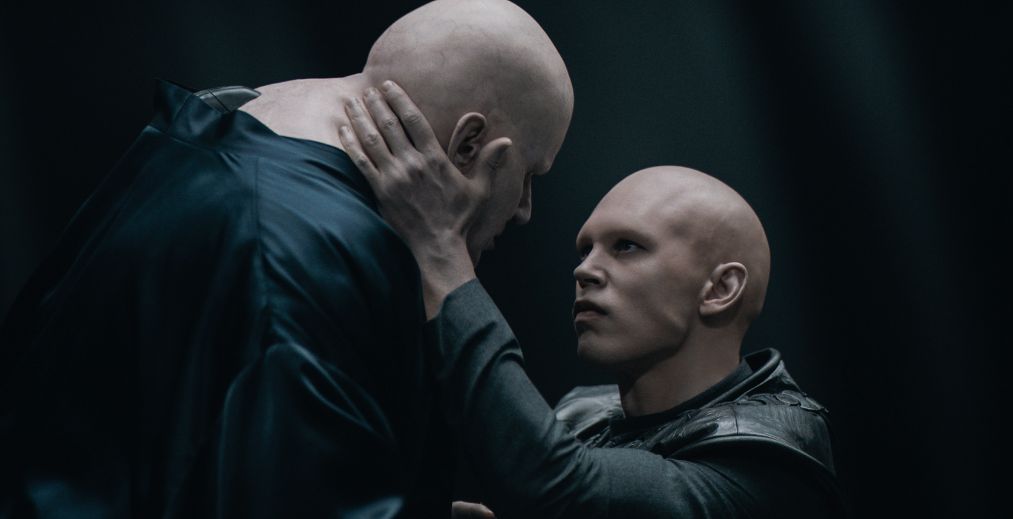
Concurrently, the Fremen desire a holy figure. The Fremen are given the most complication. Some, such as Souheila Yacoubs character Shishakli, have their doubts about Paul’s claims. Yet, a mob mentality takes over. In their own selfishness, the Harkonnen lust for control is strengthened by Austin Butler’s deliciously evil performance. The Emperor shows cruel indifference and Irulan cowardly subservience. Because of their competing goals, all of these systems come about to wreak unspeakable devastation.
Dune: Part Two is not an easy pill to swallow. That’s what makes it such an essential film. Denis Villeneuve delivers a harrowing warning to audiences about the true cost of the narrative we’re fed. Dune: Part Two refuses to be misinterpreted; its bravura spectacle is simply the delivery system for a story.
In other words, Dune: Part Two matches the second part of the book on which it’s based. Both “parts” of Villeneuve’s grand vision form a watershed moment in sci-fi. More specifically, it takes the bones of extraterrestrial melodrama and simplicity that define a space opera and builds onto it to the point of becoming something new entirely. By refusing to shy away from the novel’s prescient themes, Dune Part Two redefines the very notion of a space opera. Consequently, in an era where heroism and saviors are taken at face value, Dune Part Two redefines what kind of stories blockbusters can tell.
Dune: Part Two is available now on MAX (formerly HBOMax) and VOD.
Dune: Part Two took home Academy Awards, including Best Sound (Gareth John, Richard King, Ron Bartlett and Doug Hemphill) and Best Special Effects (Paul Lambert, Stephen James, Rhys Salcombe and Gerd Nefzer).
Dune: Part Two
-
Review - 10/1010/10
TL;DR
…In an era where heroism and saviors are taken at face value, Dune: Part Two redefines what kind of stories blockbusters can tell.


